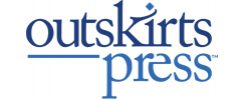Okay, back to the Guy Kawasaki speech at the recent Inc. 500/5000 conference, where Guy offered an informative session about cultivating and maintaining “enchantment” in your customers or clients. I am in the middle of summarizing those points and discussing how they are applicable for us at Outskirts Press so perhaps they can also help you apply the information to your own entrepreneurial efforts (starting a business, running a company or yes, even marketing a published book). And, in the meantime, you should get Guy’s book, “Enchantment” for the total skinny.
Step 4 is to tell a compelling story. This involves using salient talking points and “planting many seeds.” By this, I presume Guy is referring to nurturing potential clients with access points to the story, and this is somewhat related to Step #2, which was to achieve trustworthiness by establishing a rapport with the customer or client. If the compelling story you share holds relevance for the customer or client, they are that much more liable to like you and trust you because they recognize similarities between your story and their own situation. Ergo, you must be the solution to their immediate problem, because at one point in time, you were in the same position they are in now.
Compelling stories personalize businesses and companies. It’s been said before that people like doing business with other people, they are forced to do business with companies. Companies can be cold and driven by heartless concepts like profitability and analysis whereas people at companies can be sympathetic, empathetic, supportive, and nurturing. Of course businesses need to stay profitable in order to remain in business, but customers don’t want to think about that. They want to know how the people at that company are going to help them. Knowing the stories of the people in that company, or the story behind how the company was started, can help enchant those potential customers or clients to that company by better knowing its people.
I feel that many of our authors at Outskirts Press find our story compelling, because it’s easy to recognize similarities. Unlike all our major competitors, Outskirts Press was not started by identifying a changing landscape in the publishing industry and putting techno-geeks on the case to create a website capable of publishing thousands of books a day for pennies and therefore making money on volume. It’s hard for anybody to identify with that! How can a CEO who initially started open source programming software be asked to empathize with writers? How can a CEO who was previously the president of a security and antivirus company understand what a writer is going through? How can a computer science and electrical engineer possibly understand the nuances of publishing a beautiful, award-winning book? Sure, they can all program an automated piece of software where you submit a Word document, and ten seconds later your book is vomited onto your computer screen… but is that what a real author wants?
The compelling story of Outskirts Press is one of our biggest competitive advantage in the face of fairly daunting competitors, each of them run by CEOs who don’t have an ounce of writing passion in them. I am a writer. I know what it means to be frustrated by the publishing gatekeepers, to be up all night in the wake of a creative burst of energy, and to wrack my head against writer’s block. That artistic passion and fervor for the art of writing is apparent in everything we do at Outskirts Press. Authors who take their books seriously recognize that. It’s very compelling to them. It helps them become enchanted with us.
What is your compelling story? By identifying it, you just may discover what your biggest competitive advantage is.
